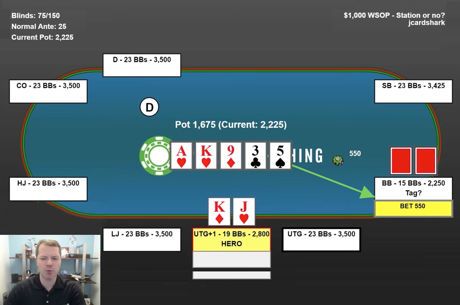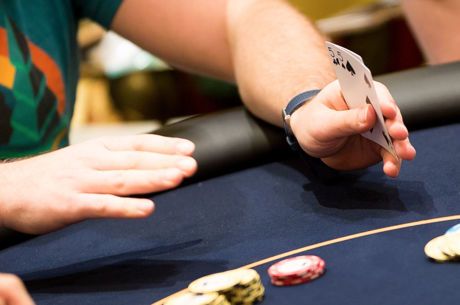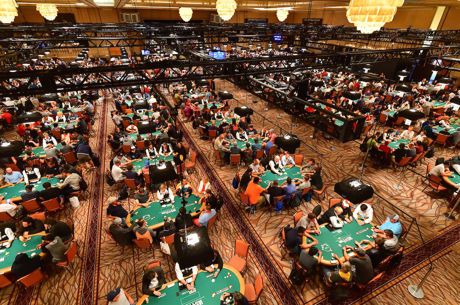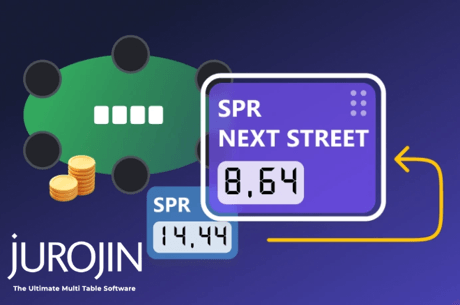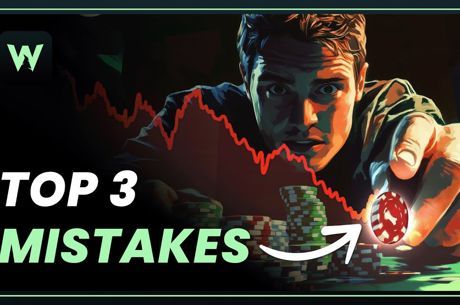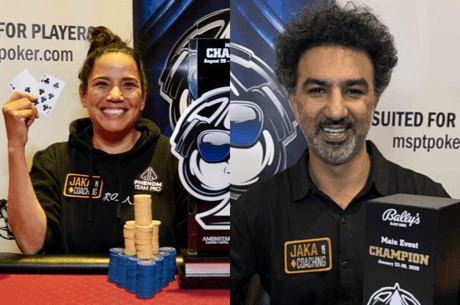Identify and Conquer Fears at the Poker Table
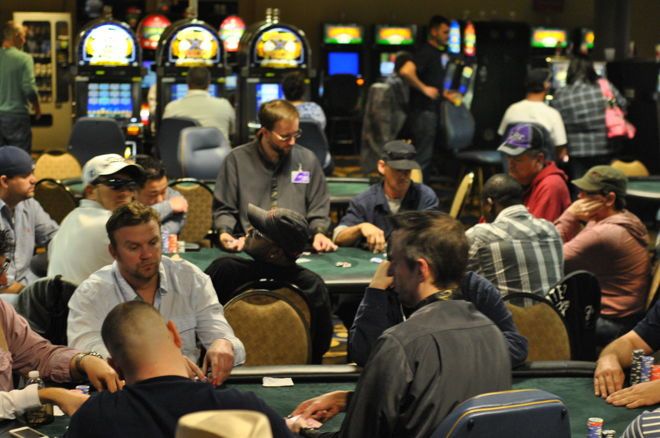
"He who has overcome his fears will truly be free." ~Aristotle
At the intersection of financial risk and incomplete information, there is much to fear.
Fear is an involuntary response to a threat stimulus that triggers a chain reaction affecting as many as five different parts of the brain. In fractions of a second the brain contextualizes the fear. Physical reactions may include dilated pupils or accelerated breathing, heart rate, and blood pressure. Fear of physical harm triggers flight or fight responses.
Other threats interrupt processes in the brain that regulate emotions, read non-verbal cues, or help us slow down and reflect before acting. When our thinking and decision-making is impaired, we become susceptible to intense emotions and impulsive reactions... and costly mistakes at the poker table.
Understanding our fears helps us identify and plug leaks in our game. Here are three recurring poker fears along with strategies to help you turn each one into a profit center.
Fear of Failure
What if you lose, repeatedly, so much that you run completely out of money and cannot play poker anymore?
This fear can emerge during the shortest of losing streaks. Failure means disappointing the people closest to you, losing the capacity to keep playing, or seeing your self-esteem spiral out of control into a dark abyss.
Fear of failure makes it hard to trust your reads in real time and inhibits you from pulling the trigger on profitable but high variance plays. You lose value by checking when you should bet, calling when you should raise, or folding when you should call. You lose leverage when this fear keeps you from topping up a short stack in a juicy game. You lose patience when fear of failure creates anxiety or panic.
Overcoming fear of failure requires disciplined bankroll management. Your bankroll is the working capital for your poker business. Play within your bankroll, at stakes that allow you to make confident decisions, knowing that even in the worst case you'll be able to play again tomorrow. Lower stakes can still be fun, and with a relaxed mind they can be highly profitable, too.
Fear of Missing Out
"Turn around and just tease me, baby" goes a hit song by Cardi B and Bruno Mars. In a poker room, the teasers can be special jackpots for bad beats or high hands, or even just that tinge of anticipation you feel as the flop is about to be revealed. Every time I fold a hand that could flop a flush, straight or set, that tinge turns to fear of missing out, a.k.a. "FOMO."
FOMO lures you into playing hands that should be folded preflop. While not a classic fear that starts with an external threat, FOMO has a similar effect on the brain and your decision-making. The best pros might be able to make money over the long run with suited one- or two-gappers in early position, but most of us cannot.
If you face too many difficult decisions when out-of-position, consider whether FOMO is causing you to widen your preflop ranges beyond your skill level. Are you slowly bleeding in the pursuit of lucky flops? Are you over-reacting to seeing a bad player win a big pot with a monster hand that started as garbage?
The best tool I've found to combat FOMO is Tommy Angelo's auto-fold range charts, which are designed to impose self-discipline on your starting ranges. Even if you miss out on some monster flops, you'll be more profitable in the long run.
Fear of Not Knowing
A passive player bets the river after a third diamond lands on the board. With a set of sevens, you make a crying call. Obviously she has a flush, but if you fold, you'll never know for sure. Fear of not knowing — or "FONK" — blocks you from folding. When she shows the flush, your first reaction is "I knew it! But I had to call."
Whereas FOMO primarily affects preflop play, FONK generally rears its ugly head when you are heads-up on the turn or river. When you are beat, paying for confirmation is expensive, especially on the later streets when bets are larger.
You've heard of "hero calls," but try adding the term "hero fold" to your poker vocabulary. (Read more about the concept over at "The Thinking Poker" blog.)
Everybody likes to be a hero, but often the most heroic acts go unnoticed. When you realize FONK is the only thing keeping you from a hero fold, let go and congratulate yourself. Remind yourself that not knowing is more profitable than confirmation.
Conclusion
Failure… Missing Out… Not Knowing. When you conquer these three fears, you'll be closer to the emotional freedom needed to play optimal poker.
David Bass mostly plays in live no-limit hold’em cash games and has been writing about poker since 2012. You can follow him on Twitter @KKingDavidPoker or enjoy his blog, They Always Have It, at https://kkingdavid.com/.

